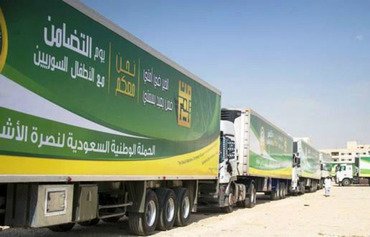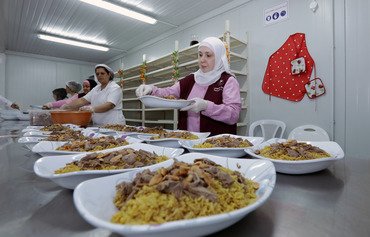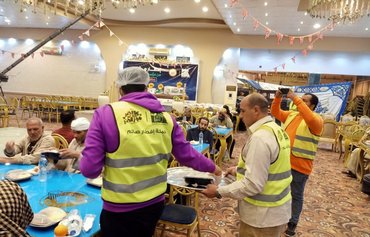Saudi Arabia continues to regulate the collection of donations, particularly during Ramadan, and is tightening procedures to prevent funds intended for charity from reaching organisations that fuel extremism, officials told Al-Shorfa.
A new directive now limits the collection of cash donations used to provide iftar meals to low-income citizens, a Ramadan custom , to licensed charities.
This year, government agencies have been directed to tighten existing measures that regulate the donation process and the work of charitable organisations.
The Ministry of Social Affairs is regulating charities by delineating their functions and rigorously accounting for donated funds, said ministry director of charitable organisations Mohammed bin Abdullah al-Asiri.
Inspections before Ramadan
The ministry began conducting inspection patrols before Ramadan to ensure charities are in compliance with the ban on donation boxes placed in public places such as shopping centres and mosques, al-Asiri said.
It also is monitoring advertisements soliciting donations and verifying the names of the advertised organisations and their associated bank account numbers.
"These measures blocked the sources of funding that used to generate funds for suspect organisations that are supportive of misguided ideas and terrorism," he said, stressing that people must report any suspect call for donations.
At the beginning of 2016, the Interior Ministry began monitoring "more than 2,000 bank accounts" belonging to private and charitable organisations as part of its efforts to combat terrorism financing, al-Asiri said.
In late 2015, he said, organisations were directed to appoint a licensed auditor to administer their financial records, which must include details of all income and expenses.
They also are required to deposit their funds in Saudi banks, and are prohibited from disbursing these funds without the approval of two authorised members of the board of directors of the respective organisation or institution.
Similarly, the zakat collection process is constantly improving, making it easier for Saudi citizens to pay zakat online via a designated website, al-Asiri said.
Targeting unauthorised agencies
"The kingdom, through its official agencies, continues to control all aspects of donations in Ramadan, during which this activity picks up pace," said Deputy Minister of Islamic Affairs Tawfiq bin Abdulaziz al-Sudairi.
Suspect entities have exploited the holy month to carry out donation drives, he told Al-Shorfa, with some proceeds going to terror groups and others to professional swindlers.
The new directive comes in response to this, he said, and serves to impose an absolute ban on the unauthorised collection of money to fund iftar meals or for any other purpose.
Donors are directed to make their payments to the government agencies tasked with collecting them, al-Sudairi said.
"The ministry is blocking all suspect funding outlets that could benefit terrorist groups, even through common panhandling at mosques," he said.
Mosque imams have been directed to monitor compliance with this ban and inform the concerned authorities of violations, al-Sudairi said.
The ministry's efforts also included a comprehensive inspection of all mosques in the kingdom to ensure their imams are legally licensed, he added.
Raising public awareness
"Saudi government agencies have effectively blocked the collection of any donations that could get into the hands of terrorists," said Adel al-Usaimi, imam of Riyadh's al-Khair mosque.
Government agencies have been directed to finance repairs needed by mosques to block parties who in the past collected donations under the guise of making those repairs, he told Al-Shorfa.
Imams have been asked to collect the personal information and copies of the identity cards of citizens who wish to hold an itikaf (spiritual retreat) in a mosque during Ramadan, while non-Saudis need to obtain a written consent from their sponsor.
"The government's efforts will not be complete without the efforts of citizens, imams and officials of charitable associations and organisations," al-Usaimi said.
Mosque preachers are responsible for educating people about the dangers that can occur when donations are not submitted to authorised agencies and the catastrophic results that can ensue if the funds are funneled to extremists, he said.
The public must be reminded that "members of extremist groups do not distinguish between people, as everyone can become a target of their crimes", he said.

![Volunteers at a charitable organisation in Saudi Arabia prepare iftar meals during Ramadan 2015. [Photo courtesy of Raef Othman]](/cnmi_am/images/2016/06/15/5596-Saudi-ramadan-donations-600_384.jpg)






